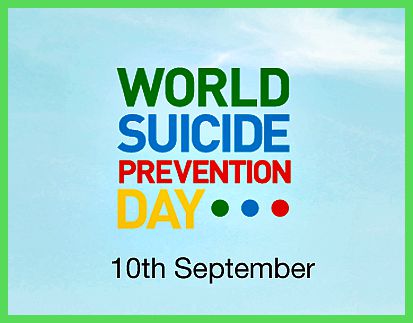25% of Repton School Dubai pupils have scored over 40 points in their 2020 IB Diplomas.
Repton School Dubai, the partner school of Derbyshire’s Repton, is celebrating record-breaking results that this year’s pupils have achieved in their International Baccalaureate (IB) examinations. Around a quarter of Repton School Dubai pupils achieved over 40 points in the rigorous, interdisciplinary exams, a huge achievement. Meanwhile, 43% of pupils achieved at least 36 points, a credit to the school’s endeavours to help every pupil to excel.
Repton and their Dubai partner school make every effort to ensure that all pupils receive the support that they need to achieve their best. As part of this promise, Repton School Dubai enters every pupil into either the IBDP (diploma programme) or IBCP (career programme), both of which aim to develop pupils’ knowledge academically, emotionally, and ethically. Thanks to Repton School Dubai pupils’ impressive 2020 results, they have secured highly sought-after places at prestigious universities, where they will study a range of fields around the world.
‘We are extremely proud to announce that our IB pupils passed their IB examinations with record results,’ says David Cook, Headmaster of Repton School Dubai. ‘Pupils who took the IBDP examinations scored an average of 34.4 points, well above the global average of 30 points and bettering last year’s average DP score, demonstrating that Repton can reach a world class of 23% of pupils attaining 40 points or more (compared to the most recent global average of 13.82%). I would like to commend our pupils for their hard work and commitment, which has come to fruition as evidenced by their stellar performance this year.’
Repton School Dubai’s IBDP, IBCP, and BTEC Qualifications
The IBDP is recognised as a significant qualification around the world. Open to pupils aged 16–19, the programme combines wide-spanning areas of study, including theory of knowledge, creative practices, activity-driven learning, service tasks, and an extended essay. The diploma encourages pupils to think independently and drive their own learning, become more culturally aware as they study a second language, and engage with others effectively in our ever-changing world. This year, Repton School Dubai pupils averaged 1.74 IBDP core points, a huge success compared to the global average of 1 point.
In addition to excellent IBDP results, Repton School Dubai’s IBCP and BTEC pupils have achieved fantastic results and secured promising further study opportunities as a result. For example, while Marcus Dutton has been awarded a golf scholarship in America, Aman Thakkar has been offered a place at the University of Birmingham to study Business Management. The IB qualification is designed to develop pupils’ personal and academic achievements, challenging them to develop their studies, creative practices, sports, and community service offerings.
Repton School Dubai integrates BTEC programmes with IBCP subjects to create bespoke programmes that support the DP subject qualifications, which are equivalent to A Levels. IBCP pupils graduate from the careers programme having also completed a Level 3 BTEC Diploma within the IBCP.
100% of Emirati pupils who completed their examinations this year have successfully earned their IBDP or IBCP certificate, meeting the region’s aim of prioritising education for young generations. Repton School Dubai has achieved higher year-on-year average results since they started offering the IB programme in 2011.
‘We embrace the IB programme because it remains our aim to develop well-rounded pupils who possess the attributes and skills required to meet the challenges of tomorrow,’ says Mr Cook.
Record-Breaking Reptonian Results
Amongst Repton School Dubai’s prefects, Head Girl Jeanne Semple achieved 44 points, marking a new record for the school. Fewer than 1% of pupils worldwide achieve this score. Jeanne has accepted a place at the London School of Economics to study Law. Meanwhile, Head Boy Abdulla Al Shirawi has accepted a place at the acclaimed Stanford University to study Physics. Deputy Head Boy Christian Holland achieved an impressive 42 points and will study German and Arabic at St Andrews, and Deputy Head Girl Michelle Elliot has accepted a highly coveted place at Cardiff University, where she will study Biomedical Science.
‘We would like to congratulate the parents and the teaching staff for working together and investing significant time and energy to support our pupils, ensuring that they excel and strive towards outstanding results, preparing them for a strong academic future,’ says Mr Cook. ‘The IB programme is recognised for its high standards and robust calibre by leading universities across the world, and that is an important consideration for Repton School Dubai, which accommodates such a diverse array of nationalities.’
About Repton School Dubai
Repton School Dubai is renowned for offering world-class education to children of all nationalities from ages 3–18. Since opening in 2007, the school quickly became one of the leading schools in the GCC, with pupils typically achieving grades that equal AAAA A Levels. Repton School Dubai also consistently achieves ‘Outstanding’ ratings from KHDA inspections.
Pupils can join one of Repton Dubai’s two boarding houses at age 11 on full-term or flexible weekly boarding conditions. As the largest school in the region, the junior and senior schools are nestled in the remarkable 1.3 million sq. ft. campus, which is based in Nad Al Sheba 3.
The school is part of Evolvence Knowledge Investments (EKI), which establishes private schools that offer a wide variety of curricula subjects in the GCC region, capitalising on the huge demand for quality, internationally recognised qualifications. When preparing for their examinations, pupils can select subjects from the school’s extensive IGCSE curriculum. Pupils can then pursue the IBDP and IBCP, combined with a choice of 45 subjects to hone their knowledge of specific academic fields that interest them most.
Repton School Dubai is part of the Repton family of schools. With all the reputation and academic rigour of its UK counterpart (Repton School), Repton School Dubai works to ensure that every pupil leaves school not only with a series of impressive academic achievements but also with the core values and character traits that will help them to thrive as courageous yet compassionate people who make a difference to the world around them. Recent alumni study at world-class universities, including the University of Oxford, University College London, Kings College London, and the University of California.
For more information about Repton School Dubai, visit https://www.reptondubai.org.












 By Annie Holmquist –
By Annie Holmquist –










